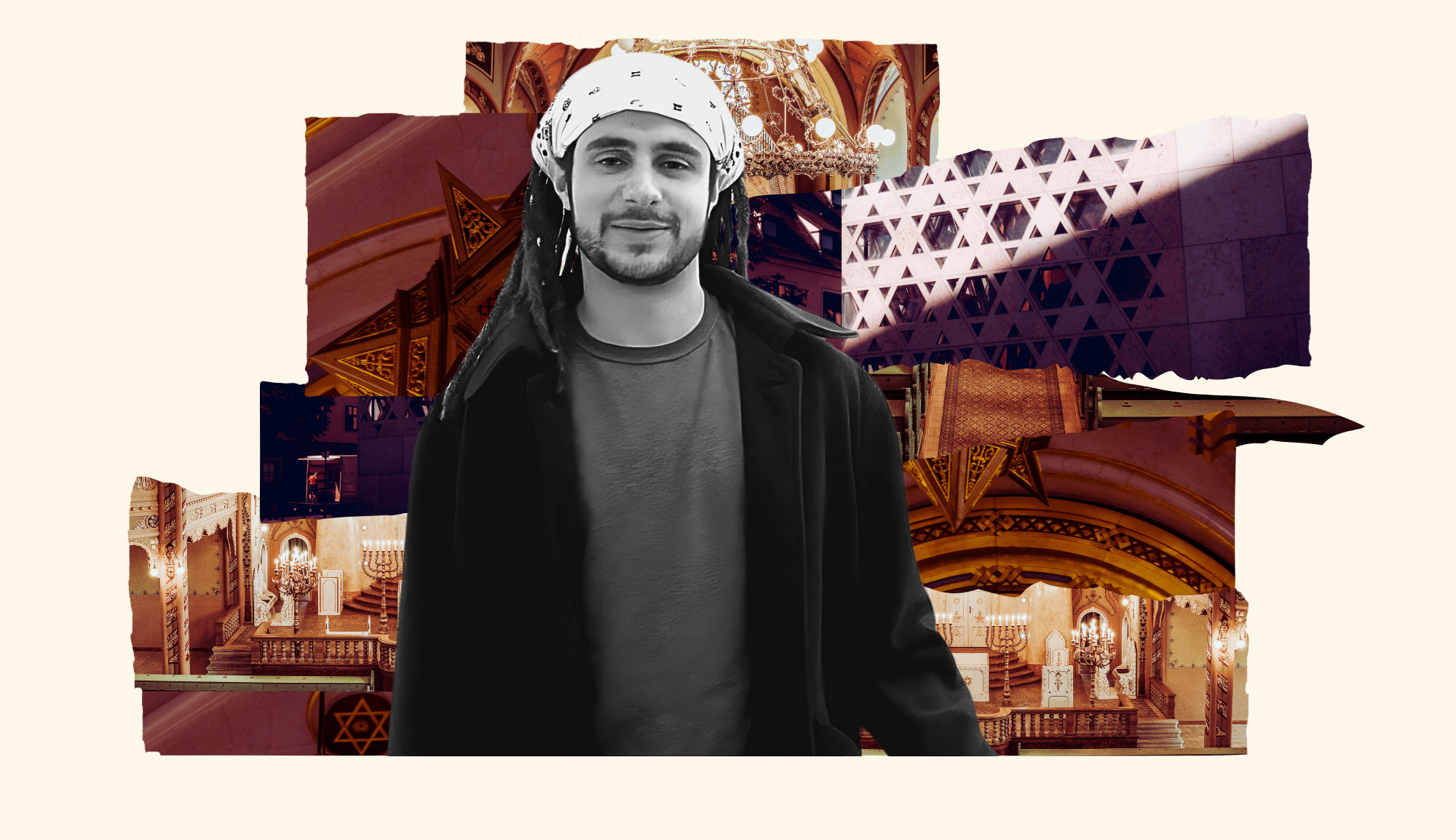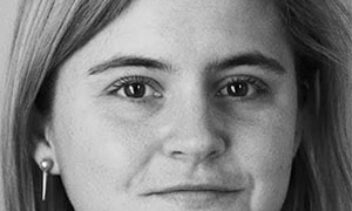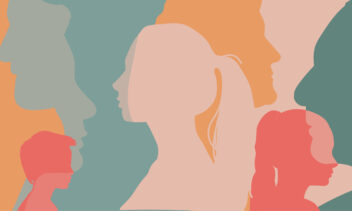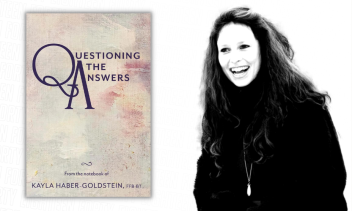When I was about nine, my Israeli uncle, a secular but principled man, visited my family in Arizona for a couple of weeks. On Shabbat, he joined us at our local Reform temple, a popular congregation where the large crowd and professional cantor made for a particularly musical experience.
My uncle sat quietly and politely throughout the services, and I wondered how he experienced it all. When the services ended, I asked him if he had anything similar in Israel. “In Israel,” he replied, “we do not need to remind ourselves that we are Jewish.”
His response confused me, but I didn’t ask anything more. It wasn’t until the end of middle school that I revisited the memory and thought I understood what he meant: From his Israeli vantage point, our American brand of Judaism seemed like a creative ritual for preserving Jewish identity; the prayers, sermons, songs, the whole “charade”—my uncle saw them as our attempt to recall our Judaism amidst a culture that made it easy to forget.
“In Israel,” my uncle replied, “we do not need to remind ourselves that we are Jewish.”
It led me to ask myself: Was that really all we were doing here? It didn’t feel true to me. And it also felt completely true. That puzzling thought became my new lens on Jewish practice, and I was increasingly uncertain about what Judaism should mean to me. That’s how my Jewish identity crisis started—and I can’t quite say that it ended.
The background to this is that my family never had a clear denomination. I attended a Reform day school, but we belonged to both Reform and Conservative congregations (and held my bar mitzvah at the latter); we had Friday night Shabbat meals and celebrated Jewish holidays but were otherwise mostly secular at home. That home life contrasted starkly with Israel’s Orthodox and Hasidic communities that I encountered on our yearly family trips. All this to say, my Jewish upbringing straddled denominations in exposure and experience. I was always crossing between a few different worlds.
I’d had enough of it all by high school. My uncle’s casual comment joined forces with other experiences—my third-grade teacher’s insistence that the Chanukah miracle was a fable invented for children, our Reform rabbi’s awkward Passover sermon explaining why he didn’t actually believe in the Exodus, my growing interest in science that seemingly contradicted the Torah’s miracles, to name a few—and Judaism no longer felt like a plausible or meaningful worldview to me. The gig was up.
With my ambiguity of a trans-denominational Judaism, it was nice to feel certain about something: If there was one thing I knew, it was that I was not religious.
The timing also couldn’t have been better. “New Atheism” was just taking off, so bashing religion was about the coolest thing you could do. With my ambiguity of a trans-denominational Judaism, it was nice to feel certain about something: If there was one thing I knew, it was that I was not religious.
To be clear, forsaking my religious identity and minimal practice was not because I found Judaism oppressive or traumatizing. My parents did an amazing job in connecting me to our tradition without making it a burden. Judaism was more like the distant cousin your parents urge you to play with at family reunions—somewhat foreign and familiar, a bit awkward, but occasionally offering a pleasant experience. At the same time, I felt hurt by it. It wasn’t that Judaism pretended to be friendly and turned out to be abusive; it was that Judaism presented as serious and turned out to be silly. My transition to atheism developed along twin paths—a clear-headed commitment to discovering the truth and a pained disappointment with a religion I felt had obscured it.
As a consequence of all that, I came to university armed with the works of Dawkins and Hitchens and ready to battle against religion. My first target was a Christian missionary on campus who probably should have been more circumspect given how quickly I agreed to meet with him for Bible study. After a few weeks of tireless debate, he politely discontinued our meetings, but not before cautioning me about the dangers of pridefulness (his one lecture that I probably should have taken to heart). But not all of my encounters with religion on campus were adversarial. Some were just odd.
One day in my freshman year, a young man with a shaved head and saffron robes approached me with a copy of the Bhagavad Gita, Hinduism’s revered scripture.
“It’s free,” he said while handing it to me, “but if you’d like to contribute to the cost of printing, it’s appreciated.”
“Oh, sure,” I replied and offered him a five. He stared at the bill in my outstretched hand.
“Printing actually costs eight dollars.”
Later that year, a Rastafarian approached me after noticing my long dreadlocks. (Yes, I went through a phase, and no, they weren’t gross. Hardly any bugs.) He began speaking to me about my “mane of Judah”—a term I knew nothing about—which transitioned the conversation to the importance of becoming educated in Rastafarianism. Reasonably or not, interactions like these reinforced the prejudices I had already been nursing: Religion was a silly thing, more interested in propagating rituals than the truth. I felt validated in continuing my campaign against it.
Just imagine my excitement when an Orthodox rabbi approached me towards the end of my freshman year. It felt like the culmination of my exodus from Judaism; I could finally sit down with a representative from its most traditional denomination, hear his best arguments, and then explain to him why it all rang hollow. It was a no-brainer. (Also, he offered to buy me coffee.)
But things went in an unexpected direction. We began meeting weekly, sometimes just to philosophize over coffee, but increasingly to dive into a particular Jewish text or idea. For the first time, I encountered Jewish works of systematic theology, and I quickly realized that this Judaism was substantially different from the one I’d left.
So it wasn’t hard to justify learning more and even experimenting with some Jewish practices that I hadn’t explored deeply in the past. Keeping Shabbat or putting on tefillin seemed meaningful, and they weren’t much weirder than what I had been willing to try at the local Zen center. At the same time, they required a lot more logistics. I still remember the local Orthodox rabbi patiently fitting my new tefillin around my dreadlocks in a way that wouldn’t leave me hopelessly entangled. And my friends and family had begun to complain about my inaccessibility on Shabbat. For every new practice I considered adopting, I also had to consider its impact on my social life, relationships, and academics.
In my junior year, my observance of the holidays required me to miss so many sessions of my physics course that the professor thought I would have to retake it. In my Hebrew language course, Orthodoxy posed a different sort of challenge. Convinced I was an expert in all things biblical, the professor routinely called on me to explain elements of Jewish history and etymology, much to my embarrassment. I hadn’t expected these challenges, but I considered them acceptable costs for my exploration of Judaism.
And it wasn’t all challenges. Being recognized as an observant Jew sometimes sparked interesting and meaningful conversations. That same Hebrew professor once asked me about my personal journey and shared that she often dreamt of becoming more religious herself. Many of the same friends who had been inconvenienced by my schedule and dietary restrictions were simultaneously curious about what they meant to me. There was a reciprocal quality to the whole process: the novelty of my observance would spark questions, and answering those questions required me to deepen my understanding of my own development.
It’s difficult for me to pinpoint a moment in this development when I considered myself fully “Orthodox.” I tried to make changes organically, when they felt like natural expressions of newly cultivated sensitivities. Sometimes I failed at that, and the resulting friction—whether with my friends, family members, or within myself—indicated to me that I could have navigated things better. Other times, I just had to accept that some friction is unavoidable; a necessary aspect of any major change.
That has been the gift of my exploration of Jewish identity. It began for me as a crisis. It has become the greatest adventure of my life.
Today I live in Israel, and I visit my uncle frequently. Having lived here for a few years, I can see what he meant—it’s nearly impossible to forget your Jewish identity here. But as I continue to explore my Judaism, I find that it reminds me of much more than my personal identity. On any given day, my encounter with Jewish wisdom draws me from economics to ecology, from metaphysics to moral philosophy, from a greater appreciation of history to a greater awareness of the present. It reminds me what it means to be a human in this beautifully interconnected world. That has been the gift of my exploration of Jewish identity. It began for me as a crisis. It has become the greatest adventure of my life.
Rabbi Dovid Campbell is the creator of NatureofTorah.com, a project exploring the Torah’s role in revealing the moral beauty of the natural world. He holds a degree in microbiology and multiple certificates in the field of complex systems. His articles on Jewish thought have appeared in numerous journals and Jewish content sites and focus on the importance of curiosity and creativity as essential Jewish values.








